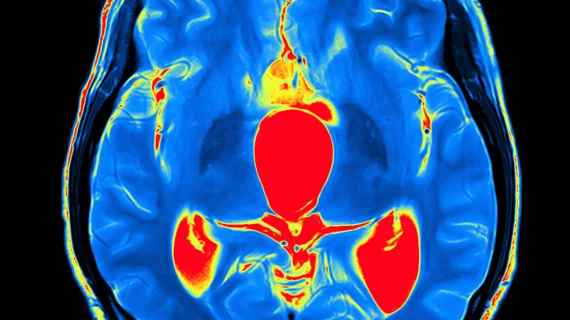NIH awards $47M for imaging study investigating lifestyle changes and brain health
The U.S. National Institute on Aging (NIA) has awarded a five-year $47 million grant to the University of California, Berkeley to incorporate imaging into an ongoing study investigating whether lifestyle changes can help protect against dementia.
The U.S. study to protect brain health through lifestyle intervention to reduce risk (U.S. POINTER) is a multisite randomized clinical trial investigating whether exercise, nutrition and other health-related changes can impact older adults who are at an increased risk for cognitive decline.
The $47 million grant from the NIA, part of the National Institutes of Health, will go toward the Neuroimaging Ancillary Study, which intends to use brain imaging methods to assess how such lifestyle changes impact brain health.
“A healthy diet and lifestyle are generally recognized as good for health, but this study is the first large randomized controlled trial to look at whether lifestyle changes actually influence Alzheimer’s disease-related brain changes,” Susan Landau, a research neuroscientist at Berkeley’s Helen Wills Neuroscience Institute, and principal investigator of the add-on study, said in a prepared statement.
According to the statement, MRI will be used to monitor overall and regional brain shape, size and blood flow and indicators of vascular disease that impact the brains of study participants. PET scanning will be employed to assess beta-amyloid buildup and tau proteins in the brain.
“U.S. POINTER is designed to determine what lifestyle interventions have a tangible impact on our brains,” said Maria C. Carrillo, PhD, chiefs science officer of the Alzheimer’s Association, which is sponsoring the study. “The addition of brain imaging is an important component that could provide the roadmap for brain health to reduce the risk of dementia before symptoms have a chance to appear.”
An estimated 5.8 million Americans are currently living with Alzheimer’s dementia, according to a figure from the Alzheimer’s Association. A recent study published in JAMA Neurology found that increasing daily physical activity may in fact help older adults delay their progression to the neurodegenerative disease.
“Our findings are consistent with a rich literature suggesting that greater engagement in physical activity is associated with a lower risk for dementia due to AD,” wrote Jennifer S. Rabin. PhD, in the July 16 study. “Importantly, these associations remained significant after adjusting for vascular risk, supporting the view that the protective effect of physical activity on cognitive decline and neurodegeneration does not solely occur via mechanisms related to vascular risk.”

